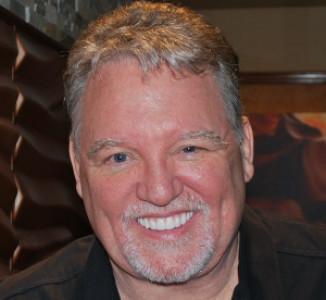A Story About Japan's Epic Earthquake : Jeff Rindt, M.A. LPC BCN \"Being Your Best Self\"
Description
Vocal Characteristics
Language
EnglishVoice Age
Middle Aged (35-54)Accents
North American (General)Transcript
Note: Transcripts are generated using speech recognition software and may contain errors.
100 years from now. What do you think People will remember about the early years of the 21st century if I were a betting man and I'm not, except for the stock market, which I'm learning is a lot like going to Vegas, at least if you're not working in the business. My guess would be that one of the most enduring stories that people around the world will pass on will be the gigantic earthquake that rocked Japan on March 11th 2011. There have been other devastating quakes, like the one in Haiti, the 7.0 quake in 2010 that was indeed awful in terms of loss of life. But the Japanese quake put the epic in epicenter. It registered a whopping 9.0 on the moment magnitude scale and lasted for more than four minutes. Think of it four minutes. The lurching of the earth was so violent that in a brief span, the entire shoreline of Japan moved an incredible eight feet from its previous global position on the Earth. The incredible force exerted actually changed the axis angle of the Earth's rotation and accelerated the Earth's spin rate shortening the length of a day by 1.8 microseconds. In the 1st 24 hours after the big quake, aftershocks measuring an incredible 6.2 re rattled the earth every 10 minutes. Each aftershock must have been a grim reminder that the people of Japan were not dreaming. I remember watching the first reports indicating a projected death toll in excess of 10,000 people. After seeing the first images of destruction, I feared it would be worse. And in fact, in a single small town of 17,000 people in the Miyagi Prefecture, there was over 9500 people reported missing, more than half the total population of a single community. Within 10 days, the death toll was 18,400 people, 9000 more were still missing and more than 100,000 people were homeless. The tsunami created by the quake was another disaster in itself. The aggressive shift in the sea floor where the quake released its energy sent an unstoppable 30 foot high wall of water racing toward shore at up to 450 MPH. When it hit land, it literally erased nearly every structure along the coastline and drowned the people in them for an hour, wave after wave of ocean water that resembled a spilled soup of cars, full sized houses, boats, garbage, pets and people rushed more than four miles inland before returning to the ocean. News Agency showed live footage of people fleeing uphill for their lives. Some narrowly escaped. Others weren't so lucky. After the water receded, it left a tangled stack of destruction more than 20 feet deep, where neighborhoods had been. Then, with the first high tide, the ocean returned 2000 bodies to shore in what was to become a gruesome daily event for over a week. There have been other comparable earthquakes since 18 99 when they started measuring them. The reason I'm talking about Japan is because of the mass access to video interviews and footage that showed the catastrophic reality people were facing and the way they handled it. I was literally moved to write and record this session on being your best self after the earthquake, because I was so deeply inspired by the Japanese people being interviewed on the news on March 12th and 13th of 2011 in the days and dark nights after the quake, while food was scarce while hundreds of thousands of people were without shelter and 2.5 1,000,000 people were without life sustaining running water, there was no report of social unrest. There was no reported looting, no street fighting, no rioting, no rape or murder at that moment. For me, the Japanese people distinguish themselves as a collection of the most well developed human beings I'd ever seen. Surely they must have been thinking of their very survival. I mean, who wouldn't? Self preservation is one of the most powerful knee jerk instincts we possess. Yet they balance their panicked emotions with rational thought about big picture solutions. They stood politely in line without crowding, yelling or cutting in. They smiled, encouraging smiles while waiting their turn for limited rations. I was amazed.
